It’s hard to imagine a cooler work environment than Downtown Los Angeles’ Ace Hotel. Housed in the historic United Artists building, there’s everything a hipster 20-something holds dear and then some—a rooftop bar overlooking the city, a revered avocado toast in the lobby restaurant, and a shockingly ornate theater, originally built for Charlie Chaplin, where you can catch rock icons like Patti Smith on a Saturday night.
So you’ll find pretty much every musician, artist, and creative in town here on any given night, plus a few cool A-list celebrities (last time I stopped in for a happy hour, I sat next to Keanu Reeves). But it’s also where you’ll find Kara Bartelt, the Ace Hotel’s Director of Engineering and Property Operations, who's making a career out of running the chicest spot in Los Angeles.
Formally trained as an architect, Kara spends her days overseeing everything from renovation projects to energy efficiency plans. And while none of those days are alike when you're running operations at a bustling hotel with multiple restaurants, bars, and a massive public events space, one thing's for certain: the work week will carry Kara up and down the historic elevators countless times.
Before joining the Ace team, Kara had multiple other lives, including a stint of entrepreneurship—she and her husband ran their own studio for close to a decade. In the end, Kara made the atypical decision to switch back to working for someone else. Doing so meant she could focus on what she valued, which includes motherhood and working directly with people (“lots of people”) on a daily basis.
She’s found her niche at the Ace where she spends days in a collaborative environment with plenty of room to get creative. And she's quick to explain it isn’t just a hotel.
“We are thrilled with the urban, the messy, and we have fun,” she says. The space and the team believes in a business that’s based on unique experiences, meaning there’s plenty of room to play. But maybe the best part, for us,—given the male-dominated fields like architecture that Kara’s experienced first-hand—is the sound of her coworkers: “As an employee of Ace, I find it incredibly empowering. Many of the leadership positions are held by smart, bold, fierce women.”
We’ll toast an Upstairs Bar draft cocktail to that.
Her Starting Point
Growing up, were you always drawn to the field of architecture and design, or did you think you wanted to do something else? What appealed to you so much about it?
I grew up in suburban fringe in the middle of Iowa between a vibrant downtown and cornfields. Most of the landscapes I knew were homogenous and cookie cutter. In a high school history class I came across a coffee table book on Frank Lloyd Wright’s Fallingwater—one of his seminal works in Bear Run, Pennsylvania. That home—a series of daring cantilevers blending interior and exterior space over a creek—opened my eyes to a vision of domesticity and built environment that I had never thought possible. I obsessed over the home and subsequently Wright, reading any book I could find on him and roadtripping to all his buildings within reach in the midwest. When choosing my major for college, the study of architecture appealed to me as it seemed the perfect blend of the academic areas art, math, and science. I wasn’t sure about what it meant to study architecture so I initially wanted to be either an architect or a computer scientist. I applied to two schools that offered both majors. After early acceptance to MIT, I literally took a few steps into both the architecture studio and the computer lab, and the decision was made.
You got your undergraduate degree at MIT where you studied both architecture and design and public policy and planning. What drew you to the public policy and planning aspect of architecture specifically? Did you continue to study those elements when you went into Yale’s Masters of Architecture program?
Moving to Boston from the Midwest was a bit of a shock—the contrast in the construction of the fabric of a city like Boston versus Des Moines, Iowa was fascinating. Studying urban planning and policy gave me a way to investigate the differences in the buildings, the roads, the open space. To begin to understand why one place turned out like one thing—and another turned out so different—over time. I felt like I was unlocking secrets that helped me make sense of the contrasts. Without judgment, I learned different designs yield vastly different results and these decisions ultimately affected people’s lives. Designing a sidewalk that is 14’ wide instead of 8’, then crafting city ordinances to allow for open storefronts and sidewalk seating, makes a world of difference in the resulting city. I put these design skills to continued use while at Yale running public design charrettes at the Yale Urban Design Workshop. In that role I enjoyed championing for small struggling cities that needed help organizing change to better their urban environments.
After spending all those years studying architecture, what were some of your first jobs after graduation? What did you learn there that you couldn’t have learned in school? Was there ever a moment during your studies and those early years when you questioned whether being an architect was what you wanted?
After school (and during school) I worked as an intern architect in a medium to eventually a large sized firm, Cesar Pelli & Associates. I was full on going to be the next Frank Lloyd Wright so I felt I had to put in my time. I quickly learned that, unlike in school, we all had to work together—on everything. Being a strong team member, and one’s skills at dealing with all the quirks and politics, can outshadow one’s design skills. The most talented one doesn’t always win. The proverbial ‘game’ was different than I had idealized and hard work and skills alone weren’t all one needed to succeed. I realized there was no such thing as a genius, and all the biographies of Frank Lloyd Wright had probably gotten it wrong. Ego did not make the (wo)man. Through these early experiences, I didn’t question whether I wanted to be an architect, but I did question regularly what kind of architect I wanted to be and how I wanted to practice.
After climbing ranks at various architecture firms, you wound up founding Lettuce Office, which you ran for over 8 years. What made you want to start your own company, and how did you know the timing was right when you did?
My spouse, Michael Chung, and I moved to LA in 2002 and we chose Los Angeles for its entrepreneurial spirit. New enterprises in this city are generally not held back by stodgy civic tradition or contemporary opinion. We saw it as a metropolis welcoming exploration. Together Michael (also coming from architecture) and I had founded other businesses—for furniture, art installations, web design—and wanted to move to a place where we could continue to pursue architecture in practice and in an academic setting while continuing our other design pursuits that didn’t neatly fall in the “Architecture” box. I quickly came to a place in my career where I wanted to leave an oppressive manager and had an academic position offered that allowed me to take the leap while retaining a few of my clients from earlier projects. The opportunities aligning like this made the decision easy—and the freedom of choice and control in my projects was welcome.
How do you stay creative and inspired? Do you ever hit creative blocks? What do you do when that happens?
At Ace, I’m fortunate that when I find myself in a rut I just need to stop and appreciate the scenery. I go to a show in our theater by an artist I don’t know; or I invite a friend over for a coffee; or I ask way too personal questions to someone in our breakroom about what they do outside of the hotel. I find perspective outside of the cycle that I’ve been obsessing about too much and just slow down. A friend of mine also at Ace—we find a quick walk down the menagerie of Broadway in downtown LA snaps us out of a present funk.

Her Big Break
Ultimately, you let go of Lettuce Office and went to work as an operations associate at the California Institute of Technology before landing at Ace Hotel. Why did you decide you were done running your own company? Were there difficulties transitioning to working for a larger company again? Do you still feel like you have creative license where you are now?
Over the course of those eight to ten years, I changed. A lot. I went from a late twenty something who didn’t mind existing paycheck to paycheck as the pursuit of the next project was a thrill, to someone who was on the cusp of motherhood and wanted more time doing the things I loved than those I didn’t. I realized that I like working with people—a lot of people. I realized that there are things in life I’m really good at—and those things are skills that I can apply to a lot of things I didn’t go to college for. Working at Caltech in operations for the campus facilities was moving totally off base, but it felt so good. I had struggled for quite a while to decide what I wanted. And it worked. My only frustration came from the fact that I, like in architecture, found myself faced with climbing a male-dominated archaic ladder.
And speaking off…tell us what it’s like working at the Ace Hotel. How did you wind up there? What does a day look like for you in the office? (We know that no two days are ever the same but if you could give us an idea of your routine we’d love it).
Working at Ace is the best of a lot of the worlds I care about. Each day I surround myself with an environment where we all care deeply about the quality of our space. We work to preserve its uniqueness. We make a place for great things to happen. I work with 300 other people that are happy to contribute to this collective experience. We are thrilled with the urban, the messy, and we have fun. I chose to come here because the company as a whole values design, cities, people, love, and innovation. As it ultimately is a hotel, we have to create the space for people to come together and eat, drink, sleep, be happy, and do business. Every morning when I come into work it feels like when I was in theater in high school—we make sure the stage is set, the people and the props are in order for the magic to happen. No day unfolds like another, some days I’m working on plans for renovations for the hotel, some days I’m able to slow down and analyze energy efficiency initiatives we want to put into place. Some days I end up just trying to best support my team while they deal with clogged building pipes or a broken HVAC system they can’t seem to figure out. I enjoy looking at the entire eco-system that is here at Ace Hotel and figuring out ways to make it better.
What do you think sets the Ace Hotel / Atelier Ace apart from other companies you’ve worked with? What’s your best advice for a woman whose dream is to work somewhere like the Ace?
Ace Hotel is a place where people work because they love to be here. When that love wanes or something else steals their heart, they don’t sit around and just accept their position as a given, they move on, and it’s all good. Ace makes a place where people want to be, for many reasons. The space is unique, and creative and accepting—and it’s not for everyone—but if you find it special too, then you are welcome—whether a guest or an employee.
As an employee of Ace, I find it incredibly empowering. Many of the leadership positions are held by smart, bold, fierce women. The company actively seeks atypical solutions to problems—we don’t see our core business that of a standard hotel. The best “business” solution may not always be the best solution for Ace when you factor in aspects of value that can’t be quantified. Ace Hotel and our leadership team at Atelier Ace know those unquantifiable added values and make space for them at every property.
You also spent many years teaching as a Professor at USC. What made you want to teach? What benefits did you get from teaching those courses that contributed to your own career?
I get the same benefit out of managing people now that I did as a teacher; I have a thirst for change and love to enable change within other people. What better way than to do that in a place like school where the very goal of your attendance is to evolve? To be able to effectively share, guide, and mentor someone means you need to know where you stand and where you want to go. I learned a lot about myself as a professor: if you have fear or doubt standing up at a lectern in front of 200 students, they can smell it. Coming into my own as a teacher meant I personally evolved as well—it gave me clarity as my professional needs changed and gave me confidence when I decided to pursue design outside of my normal expected channel.

Her Perspective
Since you’ve made quite a few transitions throughout your career, what do you think your best advice is for someone when they feel like they need/want a change?
Listen! I think change is the way of life. To ignore it is to deny your inner voice that is trying to tell you something. I embrace the fact that each day I’m different than the next and I cannot entirely know who I am becoming. I trust that my intuition and my soul are leading me to the next best thing. My next best thing. I try to have no preconceived notion of what that thing is that I’m becoming, I just trust that it will only come via continued discovery and progress. To stop is to be stagnant and stale. Keep moving.
How do you stay creative and inspired? Do you ever hit creative blocks? What do you do when that happens?
At Ace, I’m fortunate that when I find myself in a rut I just need to stop and appreciate the scenery. I go to a show in our theater by an artist I don’t know; or I invite a friend over for a coffee; or I ask way too personal questions to someone in our breakroom about what they do outside of the hotel. I find perspective outside of the cycle that I’ve been obsessing about too much and just slow down. A friend of mine also at Ace—we find a quick walk down the menagerie of Broadway in downtown LA snaps us out of a present funk.
What excites you about your field these days? How do you anticipate it will evolve over the next few years?
In property operations, I work with buildings, technology, people, and money. Four things that don’t always have the most symbiotic relationship—but are the essential elements of an urban structure. These four fundamentals are not going to change much, but the balance between them together is a constant fun struggle. How one designs their relationships, interactions, and dependencies gives me enough material for the rest of my career. I care how a good combination of those four factors can make or break a space with respect to design, return on investment, make it a place that people abhor or people love; make it a place that learns from its mistakes, betters our environment and decreases its footprint as it gets older. Like any good artist, I continue to improve my craft as I evolve. I continue to enjoy the juxtapositions and challenges poised all around me in urban settings and I hope to continue to create new spaces and places for people to enjoy.
And finally, what do you wake up looking forward to? What’s next for your career?
Again, my main MO is change. I look forward to the moves big and small I get to make each day at Ace Hotel, with my team and as an organization, as we continue to make our space in the world better one parcel at a time. I like solving the small problems that make up the bigger problems—I anticipate being able to go between the macro and the micro with greater ease and perspective as my career continues. I hope to work with even more people that always love what they do and I will continue to keep learning new skills each and every day.
You May Also Like
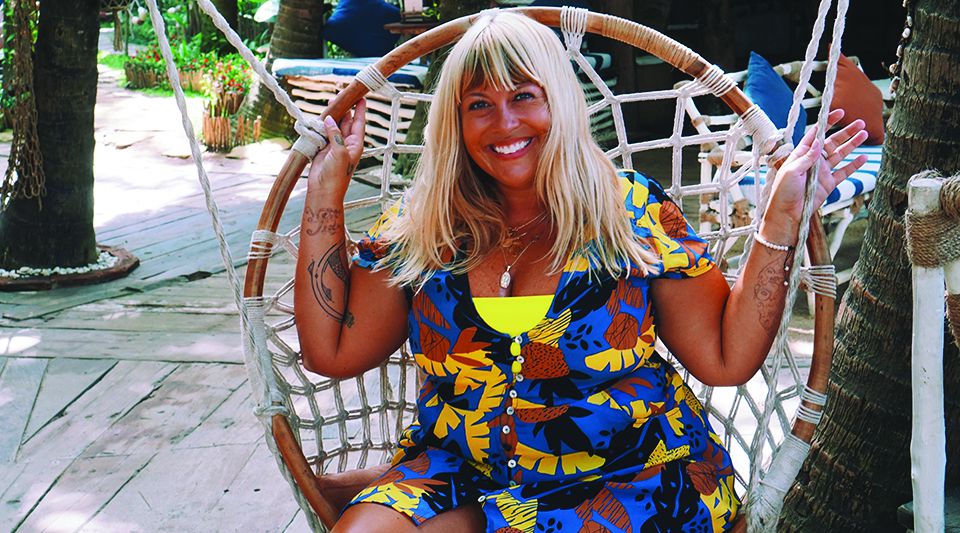
Fashion + Beauty
Unretouched—How Heather Caye Brown Disrupted the Swimwear Industry from Iowa
Heather Caye Brown always knew she wanted to be a designer. When she found out she wanted to spend the remainder of her life in a bikini, her career as a swimwear designer took off. Here's how she founded NIGHT DIVE from her home in Iowa.
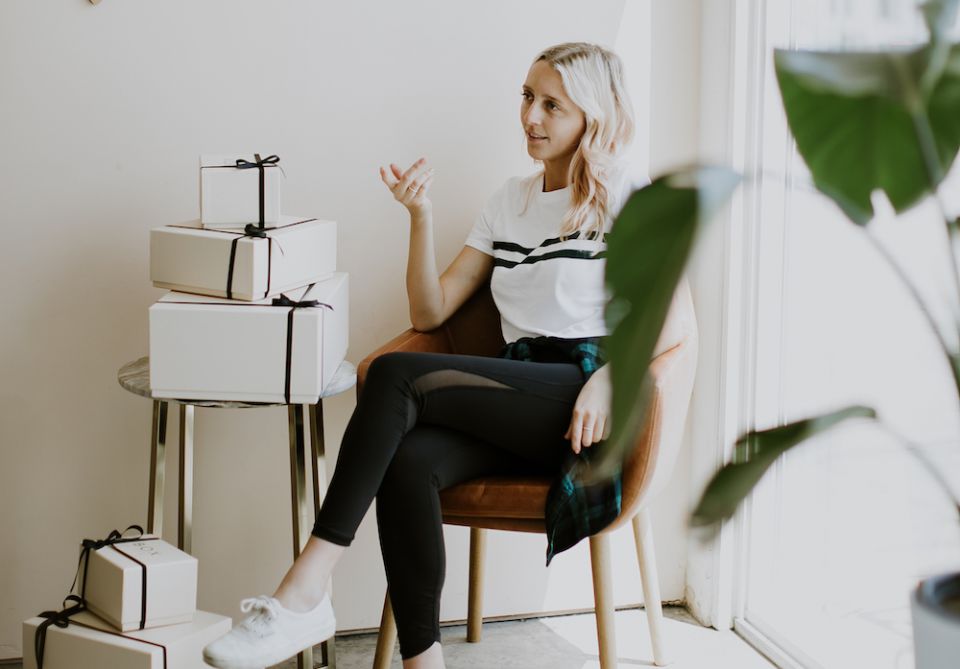
Fashion + Beauty
Disrupting the Gift-Giving Model with Co-Founder and CEO of BOXFOX
Chelsea Moore of BOXFOX joins us to talk about the gift-giving industry, about being a young leader, and how to work with friends.
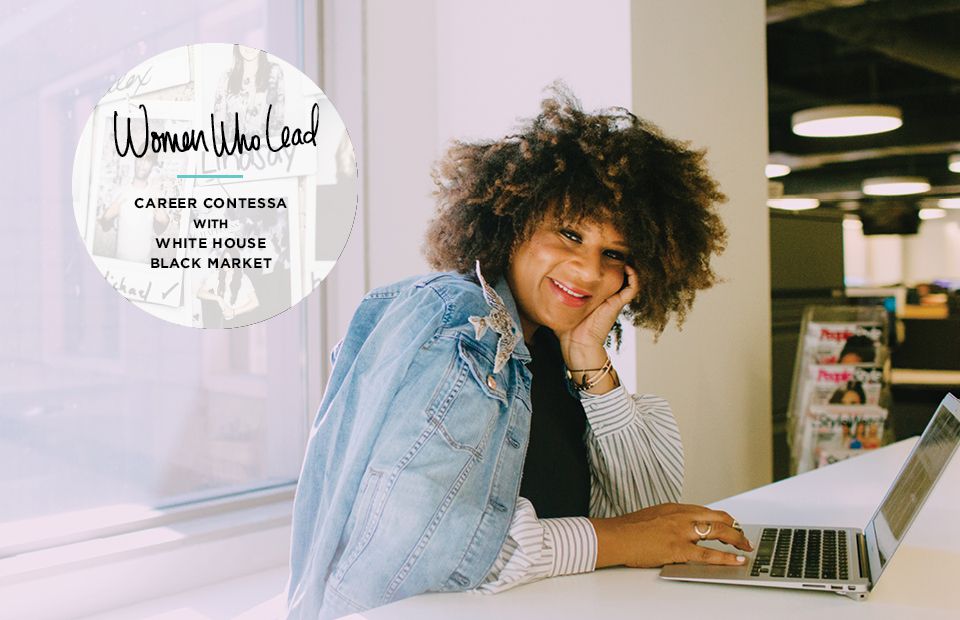
Media, Fashion + Beauty
Women Who Lead: Julee Wilson, Fashion & Beauty Director at ESSENCE Magazine
On what working in fashion media is really like and why balance doesn't exactly exist.
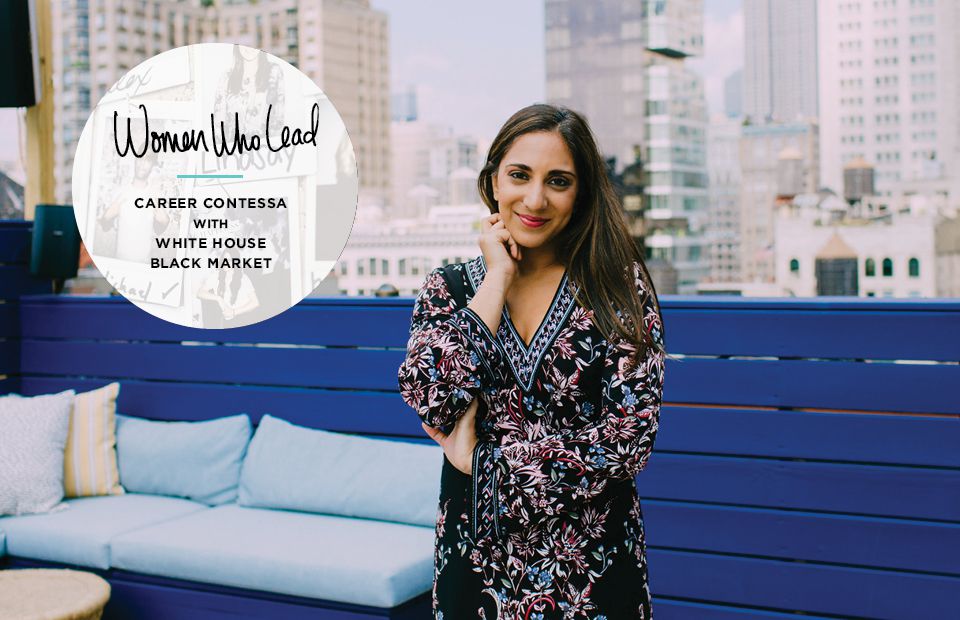
Media, Travel + Hospitality
Women Who Lead: Hitha Palepu of Hitha on the Go
On traveling for work, travel as work, and everything in between.
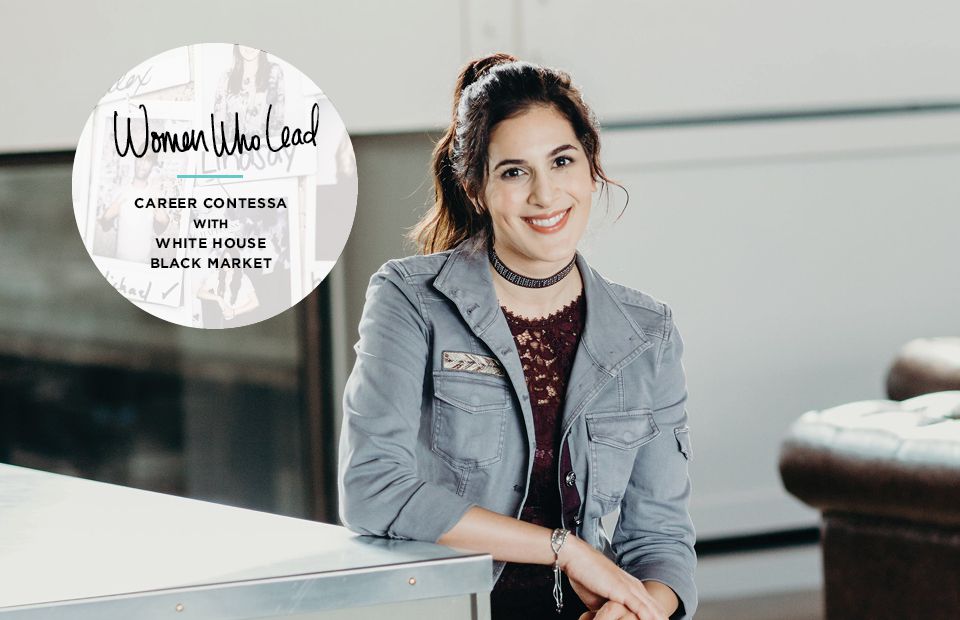
Media, Food + Beverage
Women Who Lead: Cynthia Samanian of Confetti Kitchen
From finance to foodie, Cynthia isn't afraid of risks—she's afraid of not taking them.
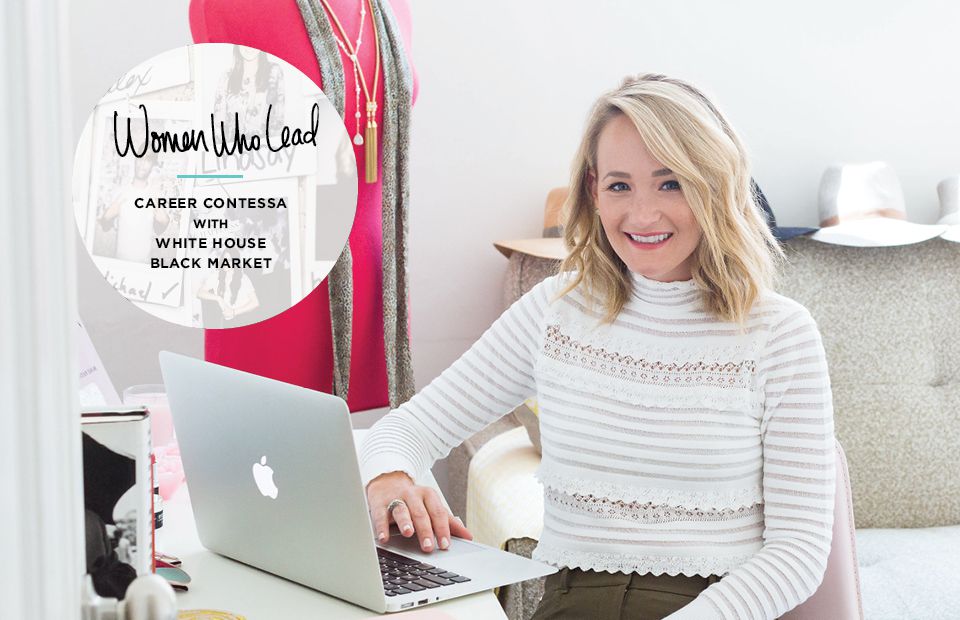
Media, Fashion + Beauty
Women Who Lead: Ashley Fultz of The Style Editrix
Ashley's showing us how motherhood and building a full-time career as a blogger can—and should—coexist.
Get the Best Career Advice Delivered To Your Inbox
Join our newsletter to stay in the loop.
